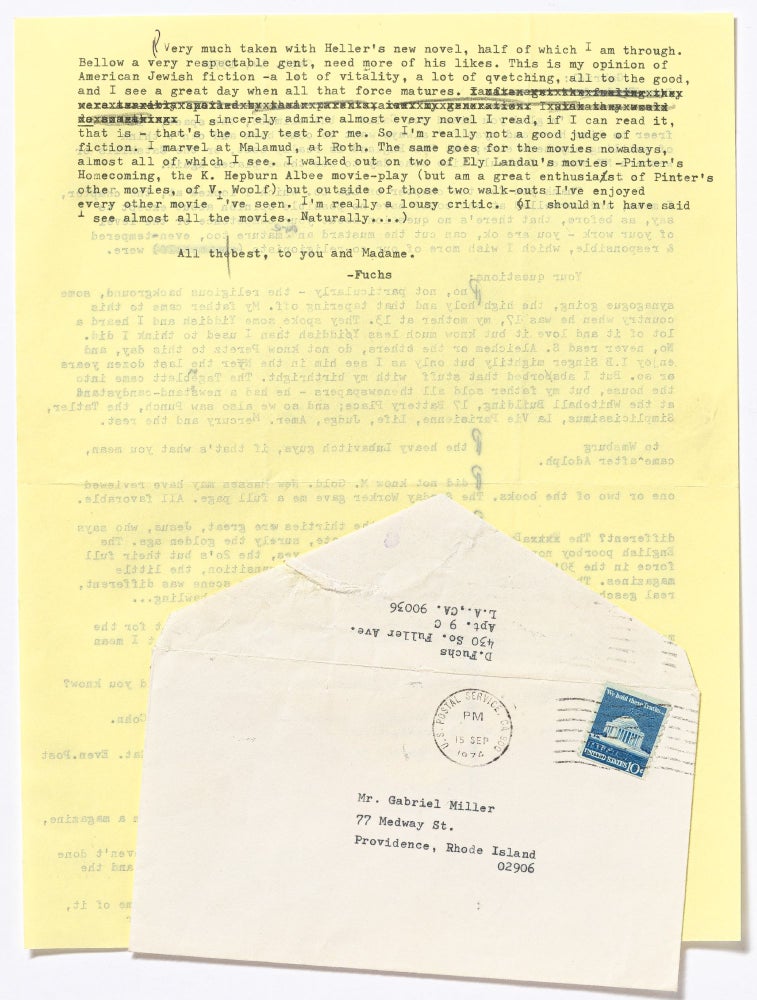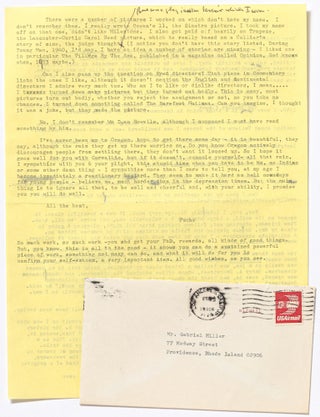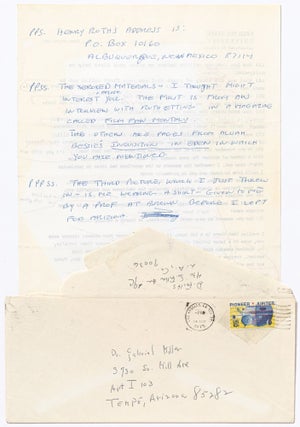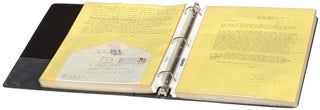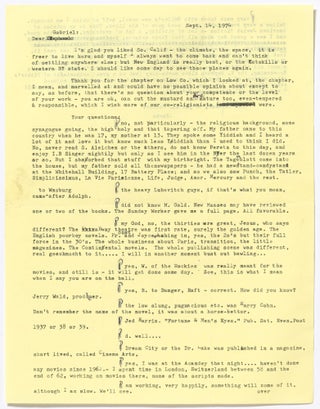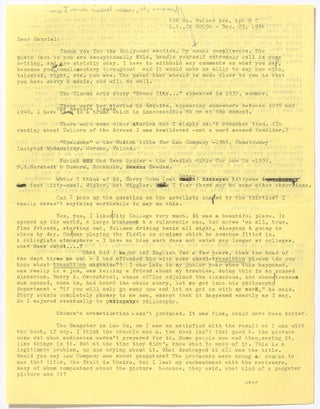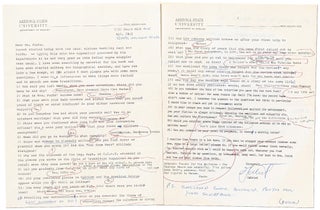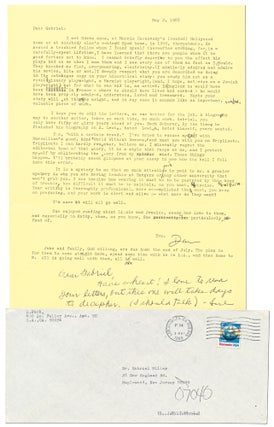(Los Angeles, California): 1973-92.
Price: $32,000.00
A collection of 49 letters written by the American novelist and screenwriter Daniel Fuchs to Gabriel Miller, author of an acclaimed biography of Fuchs. Most of the letters are typed and contain significant manuscript annotations by Fuchs. The collection also includes two letters by Miller, one of which is heavily annotated by Fuchs, together with all 51 mailing envelopes. The collection is in fine condition and rich in content, with Fuchs providing detailed responses to Miller’s questions about his life and work.
An Academy Award-winning screenwriter and widely acclaimed novelist on Jewish life, Daniel Fuchs was born in 1909 on the Lower East Side of Manhattan and grew up in Williamsburg, Brooklyn. Drawing on his Brooklyn upbringing when writing about the Jewish immigrant ghetto, he began his career with a trilogy that many critics regard as his greatest work: *Summer in Williamsburg* (1934), *Homage to Blenholt* (1936), and *Low Company* (1937).
Although all three were acclaimed by critics, they sold poorly and Fuchs moved West to write screenplays, including *The Hard Way* (1942), and *Hollow Triumph* (1948). In 1956 Fuchs won an Oscar for best original story for the MGM film *Love Me or Leave Me*.
In 1961 Fuchs’ early trilogy won new critical acclaim and commercial success when it was reprinted under the collective title *Three Novels,* and again in 1972 when it was published as *The Williamsburg Trilogy.* Encouraged by the positive reception of the trilogy, Fuchs wrote another novel, *West of the Rockies* in 1971, drawing on his Hollywood experience. Also throughout his career Fuchs contributed short stories to *The New Yorker*, *Esquire*, *Collier’s*, *Saturday Evening Post*, and *New Republic*.
In his letters to Miller, Fuchs is frank, detailed, and direct: “my God, no, the thirties were great, Jesus, who says different? The Bway theatre was first rate, surely the golden age. The English poorboy novels. Proust and Joyce washing in, yes, the 20’s but their full force in the 30’s. The whole business about Paris, *Transition*, the little magazines. The Continental novels. The whole publishing scene was different, real geschmacht to it … .”
And here, Fuchs on City College and how he came to Hollywood from a letter dated Dec. 23, 1974: “Yes, yes, I liked City College very much. It was a beautiful place. It opened up the world, a large statement & a vulnerable one, but screw ‘em all, true. Fine friends, starting out, fellows driving taxis all night, sleeping & going to class by day … What did I major in? English for a few years, then the head the dept threw me out – I had offended him with some quasi-transition pieces (do you know about transition magazine?) … So I majored eventually in philosophy.”
In another, dated February 27, 1975, he explains: “The 'transition' pieces loosened up the language (Jolas: 'The Revolution of the Word') and Lewis Freeman Mott there at City College. (Pater, Cardinal Newman, Arnold) felt everything slipping away to the riff raff and struck back. The rabble apparently won out …. 'Capone' was the first or one of the 1st…. Went to the Catskills, never worked there… We rented Joe Schrank’s 60 acre farm in Bucks Co. (Erwinna) and stayed all of two mos. S.J. Perelman, living across the road, dropped in one evening with dog and cane, beat up on Hywd, left, and I left the next week or so for Hywd, no connection. It just happened that way.”
As noted by Martin Greenberg in a 2007 article in *New Criterion*: “Daniel Fuchs keeps being rediscovered. Thirteen years after his death his three Brooklyn novels of the 1930s have again been published in one big book, by the Black Sparrow Press (Godine) which has also issued a paperback reprint of Fuchs’s writings from and of his Hollywood years, The Golden West … Fuchs liked being rediscovered, not surprisingly, and finding ‘he had become a kind of cult.’”
An important and historically significant collection of primary source autobiographical letters which further support Fuchs status as an American master. Accompanied by transcriptions of most of the letters.
References
1. Greenberg, Martin. “Daniel Fuchs: ‘A man must make money’ On the novelist and screenwriter Daniel Fuchs”. *New Criterion* (October 2007).
2. Oliver, Myrna. “Obituaries: Daniel Fuchs; Novelist and Oscar-Winning Film Writer”. *Los Angeles Times* (August 10, 1993).
3. Saroyan, Aram. “The Golden West: An Interview with Daniel Fuchs”. *The Paris Review* (July 16, 2014).
Item #466924


